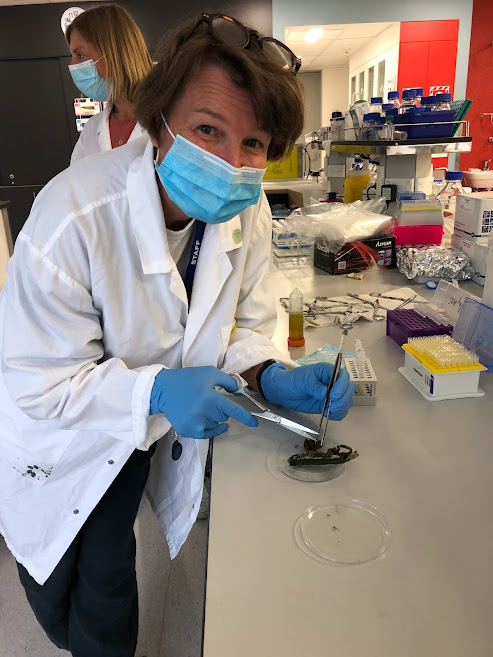Nayland College - Gerd Banke

2022 | The journey of eDNA marine intruders to the classroom
Name: Gerd Banke
School: Nayland College
Region: Whakatū, Nelson
Host: Marine Biosecurity Group at Cawthron Science Research Institute
Nayland College aims to provide a dynamic junior science curriculum which is engaging for all students and where students can see the relevance to their lives. Nayland College aspires to enhance their focus on Mātauranga Māori and the Nature of Science. Uniquely placed in Nelson, the local geography affords excellent local learning opportunities. Nelson also has world-leading local scientific institutions which Nayland College would like to enhance their connections to. Nayland College wants their junior students to engage with the ‘Big Ideas’ about science and develop the skills to carry them successfully through into the new NCEA standards. They would like their students to understand the relevance of science and develop their ability to question, investigate and think critically. Nayland College’s aspirations is for their students to be able to excel and be well prepared for science in everyday contexts as well as for future study and career pathways.
Gerd is an experienced classroom science teacher having taught at Nayland College for 17 years. In that time, she has been a Specialist Classroom Teacher, a Kāhui Ako ‘within school teacher’ and an acting Head of Department (Pūtaiao). Gerd is a reflective teacher who is passionate about providing students with contexts that are meaningful, challenging and engaging, and where students develop their scientific literacy skills enabling them to successfully engage in the Nature of Science at Nayland College and their wider community and beyond.
Gerd is hosted by Xavier Pochon and Anastasija Zaiko who both work within the Marine Biosecurity Group at the Cawthron Science Research Institute. This group is looking at how environmental DNA (eDNA) can work as an early detection tool against marine invaders. As part of their Marine Biosecurity Toolbox, they are also developing a school outreach programme, bringing eDNA technologies into the classroom. The aim is to develop a well-resourced programme that will ensure sustainable and long-term incorporation into science teaching locally and perhaps even nationwide. As an experienced educator, Gerd will be assisting with the development and running of the school outreach programme in the Nelson region. Gerd will also be involved in the laboratory work associated with the development of the eDNA toolkit. These laboratory procedures are part of the molecular analysis workflow which includes DNA sampling, DNA extraction, PCR, gel electrophoresis, DNA sequencing, and DNA analysis. To further develop Gerd’s understanding of the eDNA process, Gerd will be attending the annual eDNA conference in Hobart. This will also be a great opportunity to connect with other scientists who are developing outreach programmes. While at Cawthron there will also be opportunities to attend seminars, workshops, and talks run by Cawthron staff, observe other departments within Cawthron and connect with other scientists and their work.
This programme aims to give Gerd a firm foundation of knowledge and understanding of the Nature of Science, an introduction into marine security tools, a wider understanding of marine ecology as well as associated field and laboratory skills and procedures.
